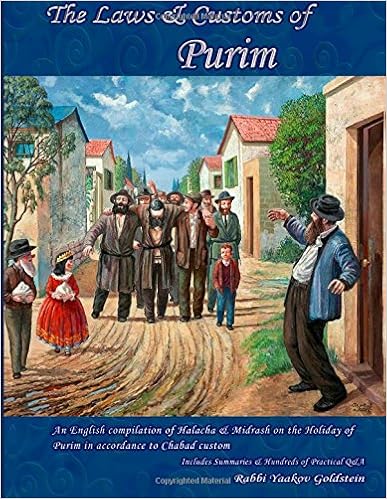This article is an excerpt from our Sefer

Buy me on Amazon.com
What is one to do if there are no paupers available? [1]
If there are not any [Jewish[2]] paupers available in ones vicinity to distribute to them Matanos Laevyonim, then one is to set aside the money, and give it to a pauper when the opportunity presents itself.[3] [Alternatively one can appoint a messenger in a different city to give charity on his behalf in that city.[4] Today it is readily available to donate money for Matanos Laevyonim in many different areas of the world through credit cards. There are many Matanos Laevyonim website funds available for this purpose.]
Q&A
Who is considered a Pauper?
Some Poskim[5] rule that only those paupers which are extremely poor [and are beggars[6]] are considered Evyonim, and are to be given Matanos Laevyonim.[7] Other Poskim[8] rule that anyone who is poor, even not to the extreme mentioned above, is considered an Evyon and may be given Matanos Laevyonim.[9] Practically anyone who cannot afford today’s normal monthly expenses is considered poor and may be given Matanos Laevyonim. Likewise anyone who has extra necessary expenses that he cannot afford, such as heavy medical bills, or the marrying off of children, is considered poor in this regard.[10]
Are Yeshiva Bochurim considered like paupers in the above regard?[11]
Yeshiva Bochurim that do not have an income of their own are considered like paupers and may be given Matanos Laevyonim. It is questionable whether a Bochur with wealthy parents is also considered a pauper or not.
[1] 694/4
[2] M”B 694/12
[3] Either giving it to a pauper that arrives in his city, or sending the money to a pauper of a different city. [Chayeh Adam 155/28; Kaf Hachaim 694/39; Kitzur SH”A 142/3]
[4] Kinyan Torah 3/103
[5] Makor Chaim of Chavos Yair 694/3
[6] See Aruch Hashulchan 694/3
[7] There is a difference between an “Evyon” and an “Ani”. An Evyon is one who is so poor that he begs for money from others. An Ani is one who is poor but not to the extent that he begs.
[8] Aruch Hashulchan 694/3
[9] The reason: As the Torah itself interchanges the terms Ani and Evyon to refer to a poor person. Now, the reason the verse states “Matanos Laevyonim” and not Aniyim is because it is coming to teach us that one fulfills the Mitzvah not only by searching for poor brethren and giving them a donation, but also by giving those that beg. [ibid]
[10] Piskeiy Teshuvos 694/2; Tzedaka Umishpat chapter 2
[11] Piskeiy Teshuvos 694 footnote 16


Leave A Comment?
You must be logged in to post a comment.